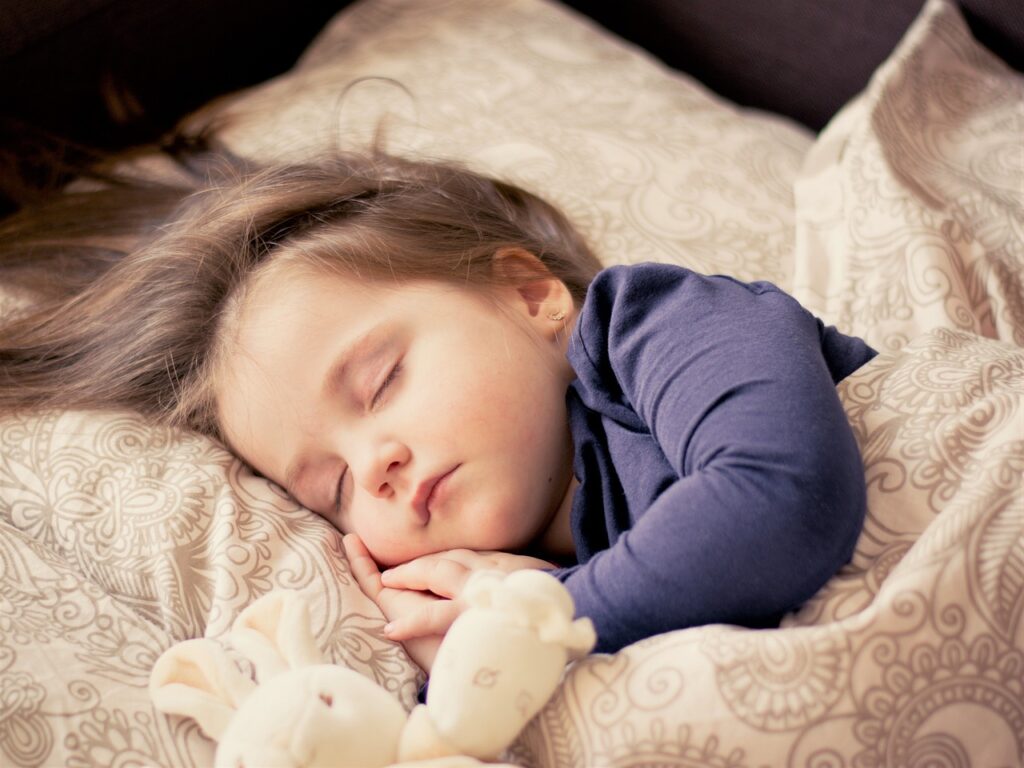We’ve all heard the age-old advice: get eight hours of sleep a night. But what if your body doesn’t want to sleep from 10 p.m. to 6 a.m.? What if your brain lights up with ideas at midnight or you’re ready to crash by 8:30 p.m. no matter how hard you try to push through?
The truth is, sleep isn’t a one-size-fits-all deal. That’s where the idea of sleep syncing comes in, a simple yet game-changing approach that tailors your sleep habits to your chronotype, or your body’s natural timing system. Think of it like syncing your internal clock with your daily routine instead of fighting against it.
Let’s unpack what sleep syncing is, how to find your chronotype, and how to use that knowledge to feel more energized, focused, and genuinely well-rested.
What Is a Chronotype?
You’ve probably heard people refer to themselves as night owls or early birds. These labels are casual ways of talking about chronotypes, your body’s natural preference for when to sleep, wake, and be most alert.
Chronotypes are influenced by genetics, hormones, and light exposure. They don’t just affect your sleep; they also influence your energy peaks, creativity, focus, and even your eating habits.
There are generally four recognized chronotypes:
- Lions – The early risers. Most alert in the morning and winding down by evening.
- Bears – The “typical” schedule. Energy peaks around mid-morning to early afternoon.
- Wolves – The night owls. Most alert in the evening and late at night.
- Dolphins – The light sleepers. Often struggle with regular sleep and tend to be alert late at night and early morning.
These categories aren’t rigid, but they offer a helpful framework for understanding why some people function best at 6 a.m. while others hit their stride closer to midnight.
Why Sleep Syncing Matters
When you ignore your chronotype, staying up too late, waking too early, or forcing focus during your low-energy hours, it can leave you groggy, irritable, and chronically tired. Over time, this can mess with your hormones, weaken your immune system, and even affect your mood and mental health.
But when you align your sleep with your internal rhythms, everything works more smoothly. Sleep syncing helps you:
- Fall asleep faster and stay asleep longer
- Wake up feeling naturally refreshed
- Improve focus and productivity
- Support metabolism and digestion
- Boost mood and emotional resilience
It’s not about sleeping more; it’s about sleeping better, in a way that matches your biology.
How to Discover Your Chronotype
You probably already have a sense of when you naturally feel sleepy or energized. But if you’re curious, try this mini self-assessment:
- Do you wake up without an alarm before 7 a.m. and feel sharp in the morning? You might be a Lion.
- Do you feel best from 10 a.m. to 2 p.m. and get sleepy by 10 p.m.? You’re likely a Bear.
- Do mornings feel like punishment, and your mind lights up after dinner? Hello, Wolf.
- Do you struggle with sleep consistency and feel most alert mid-morning and late at night? You could be a Dolphin.
Still unsure? There are online chronotype quizzes (like Dr. Michael Breus’ “Power of When” quiz) that can give you more detailed insights.
Syncing Your Sleep with Your Chronotype
Once you know your chronotype, you can start adjusting your schedule in small but powerful ways. Here’s how:
Lions (Early Risers)
- Ideal sleep window: 9 p.m. – 5 a.m.
- Productivity peak: Morning (6 a.m. – 12 p.m.)
- Tips: Front-load your day with high-focus tasks. Avoid heavy evening plans, and let yourself wind down early.
Bears (Midday Movers)
- Ideal sleep window: 11 p.m. – 7 a.m.
- Productivity peak: Late morning to early afternoon (10 a.m. – 2 p.m.)
- Tips: Stick to a consistent schedule, even on weekends. Aim for natural light exposure during the day to keep your rhythm steady.
Wolves (Night Owls)
- Ideal sleep window: Midnight – 8 a.m.
- Productivity peak: Late afternoon to evening (3 p.m. – 9 p.m.)
- Tips: Delay intense morning tasks. Try creative or solo work in the evenings when your mind is most active. Avoid early commitments if possible.
Dolphins (Light Sleepers)
- Ideal sleep window: Varies, often midnight to 6 a.m.
- Productivity peak: Mid-morning and late evening
- Tips: Focus on calming nighttime routines and mindfulness practices. Avoid caffeine after noon. Break tasks into short, manageable bursts.
Optimizing Sleep with Circadian Rhythm Support
In addition to knowing your chronotype, it’s important to support your body’s circadian rhythm, the internal 24-hour clock that regulates your sleep-wake cycle.
Here are a few simple ways to strengthen your rhythm:
- Get Natural Light Early
Sunlight in the morning helps regulate melatonin production, which controls when you feel sleepy. Step outside first thing—even just for 10 minutes. - Be Consistent with Wake-Up Time
Even if your bedtime shifts a bit, waking at the same time daily (yes, weekends too) helps lock in your rhythm. - Create a Bedtime Ritual
A calming routine (think dim lights, stretching, reading) signals your brain that sleep is coming. Avoid screens at least 30 minutes before bed. - Limit Caffeine and Alcohol
Both can interfere with sleep quality and throw off your natural cycle. Try to cut caffeine after lunch and limit alcohol close to bedtime. - Move Your Body
Daily movement helps you sleep more soundly. Just avoid intense workouts right before bed, especially if you’re not a night owl.
Sleep syncing isn’t about being rigid. It’s about tuning in, recognizing when your body thrives, and building your day around that natural flow. It may take some experimentation and a few schedule tweaks, but once you find your rhythm, everything feels easier.
The goal isn’t perfection. It’s alignment. And when your sleep, energy, and focus are in sync, your whole life benefits, from how you show up at work to how you connect with others and take care of yourself.


